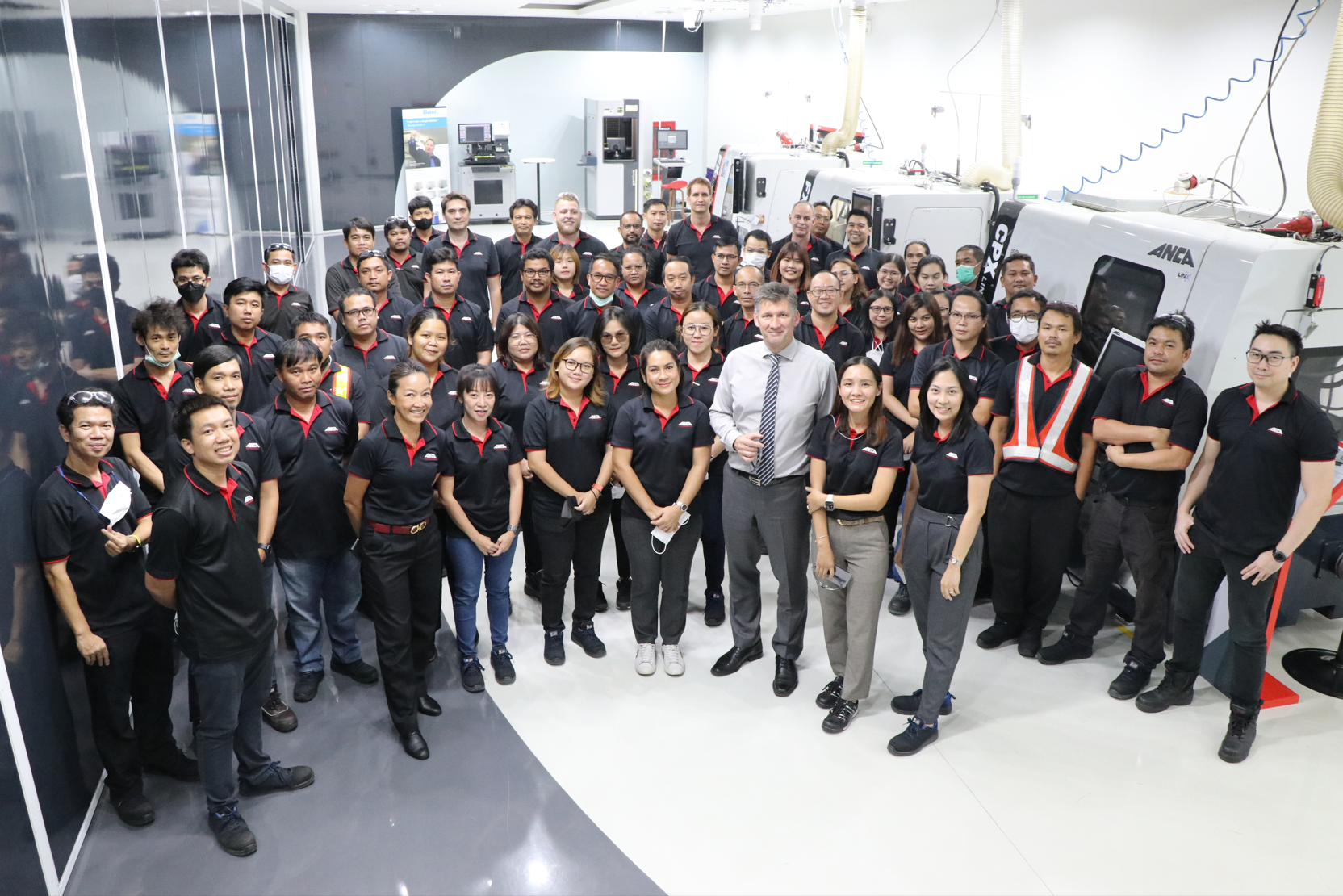ANCA is proud to be an Australian owned global business founded in 1974, in Bayswater, Victoria. The set up of our Thai activities and facilities has certainly allowed us to develop new opportunities in Asia, Southeast Asia and wider Asia. It has also allowed us to access an enhanced set of skills. This has been a good experience not only for our Thai employees, but also for Australian operations here.
Our original assessment for setting up the new manufacturing site was conducted in 2004. We looked at China, India, Malaysia, Singapore and Thailand. Thailand was ranked high in our metric, but the support and guidance from the Board of Investment and Austrade is help to confirm the decision to set up in Thailand. The relationship between Thailand and Australia has been very stable for many, many years and it's benefited both societies and both countries.
We export around 98% of our product to the customer in more than 50 countries. We estimate that about 1.1 billion tools have been made on ANCA’s over the years, and we are known in the marketplace to be the innovator of this space and of this industry, and that fills us with pride. We’ve been grateful and very thankful for the professional support Austrade has given us throughout the years and continues to give us.
We see Thailand remaining a critical part of ANCA’s overall supply chain, along with our supply base across Southeast Asia. We also are looking to consolidate more of our freight out of Thailand. The advice we would give is engage with Austrade and other agencies, professionals from Australia and from Thailand, who will help you to avoid the pitfalls, overcome challenges, reduce your risks and accelerate your timeline. And invest in people along the way.
Those things we believe are fundamentally important.
